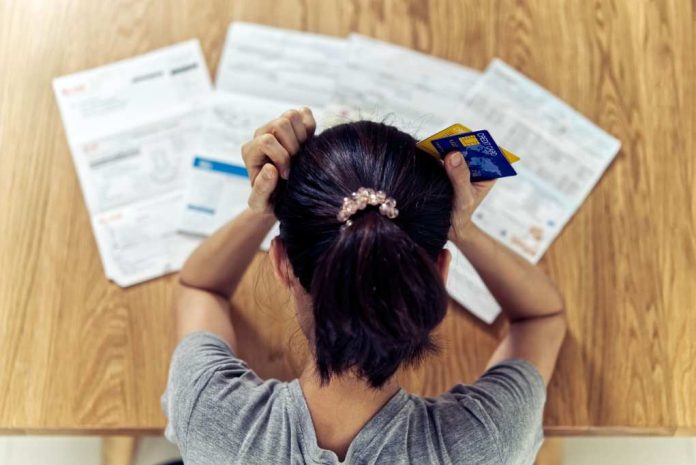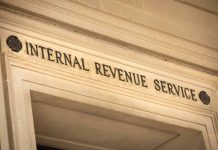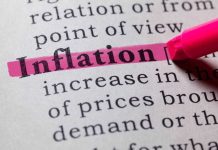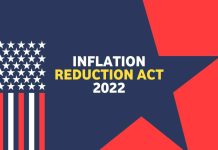
Curious about the differences between credit repair vs chapter 7 bankruptcy? You’ve come to the right place. Today, we’re going to take a deep look at the pros and cons each of these tactics offers, and help you pick the right one based on your unique financial situation.
Financial management can be difficult. When people find themselves in a bad situation they may consider filing for bankruptcy as a way to start fresh. However, that may not be the best option for your financial situation. While it’s always recommended that you speak to a professional, there are some options that you can consider on your own before you make any big decisions!
And today, we’re going to compare chapter 7 bankruptcy vs credit repair – another great choice to help you restore your financial standing. These two tactics share some similarities and work towards the same common goal – but they are very different. Each has its own unique pros and cons. And, your unique financial situation will dictate which of them makes the most sense for you.
We’ll get into the credit repair vs chapter 7 bankruptcy debate shortly. First, we want to begin with a brief overview of credit in general. This will help us better navigate the conversation in depth later on. So, without any further ado…
Understanding Your Credit
Before you can learn when you should consider a Chapter 7 bankruptcy, you will want to have a better understanding of your credit score. Your score is an important factor in your finances. Generally, a score will range from 300 to 850 and impacts your ability to buy a home, get a car, qualify for loans, and more. Your score is calculated by information found on your credit report by the credit bureaus. Your credit report has your credit history information like amounts owed, the age of your accounts, etc. There are three main credit bureaus which are Experian, Equifax, and Transunion.
When an individual has a bad credit score, they can find that life can be much harder to deal with. Your score is a number that lenders use to get a better idea of how you are as a borrower. Each credit bureau (also known as a credit reporting agency) uses the scoring model of their choice. The two popular options are VantageScore and FICO (but the FICO scoring model is more popular).
What Does it Mean to Have a Bad Credit Score?
According to the FICO scoring model scores between 580 to 669 are considered “fair” while scores below 580 are considered “poor” or “bad”. VantageScore is a little different. They view a score of 601 to 660 as “fair” while scores between 500 to 600 are considered “poor”. Scores that are below 500 are considered “very poor”.
If you have a bad score then lenders can view you as a subprime borrower which means you likely come with more risk to the lender. This can lead lenders to flat-out deny your application or charging you higher interest rates compared to someone with good credit.
What Factors Impact Your Credit Score?
There are generally five factors that impact your score which include:
- Payment History
- Credit Utilization Ratio
- Age of Your Credit
- Hard Inquiries
- Credit Diversity
These factors will be important to keep in mind when you are reviewing ways to handle your financial situation.
What is Chapter 7 Bankruptcy?
When people find themselves in a tough financial position they may consider filing Chapter 7 bankruptcy (also referred to as a straight bankruptcy or liquidation bankruptcy). There are multiple different types of bankruptcies, also known as chapters. And, this particular type of bankruptcy clears away a variety of unsecured debts.
This can be beneficial to people who are struggling to keep up with monthly payments and cannot afford their bills. Oftentimes, it is the last resort for people who want to reset their finances. However, it comes with consequences like impacting your credit score and the possibility of giving up possessions.
How Does Chapter 7 Bankruptcy Work?
The process of a Chapter 7 bankruptcy isn’t just a simple walk in the park. You will need to file it with the court. The court will then place an automatic temporary stay on your current debts. This stay makes creditors stop collecting payments, garnishing wages, foreclosing your property, repossessing your property, etc.
The court will take legal possession of your property and then appoint a bankruptcy trustee to your case. A bankruptcy trustee has the job of reviewing your financial situation and assets. They will be the ones to oversee your bankruptcy. Some tasks that a trustee will perform include selling your nonexempt property to pay creditors, arranging creditor meetings, and more.
The process generally takes between four to six months from the initial filing. The court will discharge your remaining eligible debts which means you will not be responsible for paying them.
Pros and Cons of Chapter 7 Bankruptcy
Even though this kind of bankruptcy is one of the last resorts that people will do when handling their current situation it can come with some benefits such as:
- A fresh start
- The ability to keep your future income
- No limitations on debt
- Debt can be discharged pretty fast
- Less or no debt payments
These are some nice benefits but they may not be able to outweigh the drawbacks like:
- You can’t file for Chapter 7 if you make too much
- Your credit will likely take a hit
- It can’t get rid of all unsecured debts
- You may lose property
- It won’t erase the debt for others like cosigners
Since bankruptcy involves filing with the court, you may benefit from getting a bankruptcy attorney. A good bankruptcy attorney will need an overview of your case so that they can provide advice on available options, help with paperwork, and represent you when the case goes to court.
What is Credit Repair?
This is the process of fixing a poor credit standing. People can have a bad credit score for plenty of different reasons. Repairing credit can either be done on your own or with the help of a professional agency like a credit repair company.
Credit Repair on Your Own
If you aim to repair your credit on your own you can do so through a variety of different ways. First, you will want to get into good habits. Handling your debt and credit utilization ratio first will be key. You will want to make sure that you pay your bills on time every month they are due, get your credit usage (credit utilization ratio) down to below 30%, etc.
Besides getting into good habits, you may want to dispute any inaccuracies found on your credit report. You can do this by getting a free copy of your credit report (you can get a free one every year). After reviewing your credit report you will want to find any inaccurate information. Common information that can be disputed includes identity errors, inaccurate account information, and more.
Help from a Credit Repair Company
A credit repair company is an organization that can help consumers handle the dispute process. They do not provide any service that a consumer cannot do on their own. However, they advertise that their experience and knowledge make the dispute process easier to handle and save the consumer time and effort. However, these credit repair companies can be costly, especially for a service that you can do on your own.
Credit Repair vs Chapter 7 Bankruptcy: Which is Better?
Now that we’ve talked about the pros and cons of credit repair vs chapter 7 bankruptcy, it’s the moment you’ve been waiting for…which is better? More specifically, which is right for you? Unfortunately, it’s impossible to give a clear answer. That’s because your unique financial situation, credit history, and preferences will dictate which of these makes the most sense.
Thus, you will want to get in touch with a professional when determining which option would be better for your current situation. However, credit repair can be done on your own for free and will not negatively impact your credit.
Some people may find themselves in such a difficult financial situation that they need to turn to a Chapter 7 bankruptcy in order to get a fresh start they need to begin from scratch. However, that comes with repercussions like the impact on your credit score, repossession of property, etc.
How Long Does it Take to Rebuild Credit After Chapter 7 Bankruptcy?
Again, this varies based on the borrower. However, people can generally assume that the process to rebuild credit after this kind of bankruptcy will likely take between two months to two years for your score to begin improving.
Even though it may be a daunting task, the bankruptcy filing process is pretty easy. It can be even easier when you have the help of a bankruptcy attorney. You may benefit from getting in touch with one before you start the bankruptcy filing process so that you can be sure that this is not only the right decision but that you handle it responsibly.
Final Thoughts on Credit Repair vs Chapter 7 Bankruptcy
Between credit repair vs Chapter 7 bankruptcy, you will want to confirm your choice with a professional. Credit repair can help people get rid of inaccurate information found on their credit report and improve their credit. However, it cannot get rid of debts that rightfully belong to the consumer.
On the other hand, Chapter 7 bankruptcy is an option that can provide consumers with a fresh start but involves a whole process with the courts. It typically comes with drawbacks like a negative impact on your credit score and the repossession of property.
There are ways that you can handle your credit situation yourself like with debt settlement (also known as debt relief). If you find yourself in a tough financial situation you should get in touch with a credit counseling agency. You can provide them with details about your current situation and a credit counselor can help you come up with a plan of action. Your situation may not be as hopeless as it feels!




























